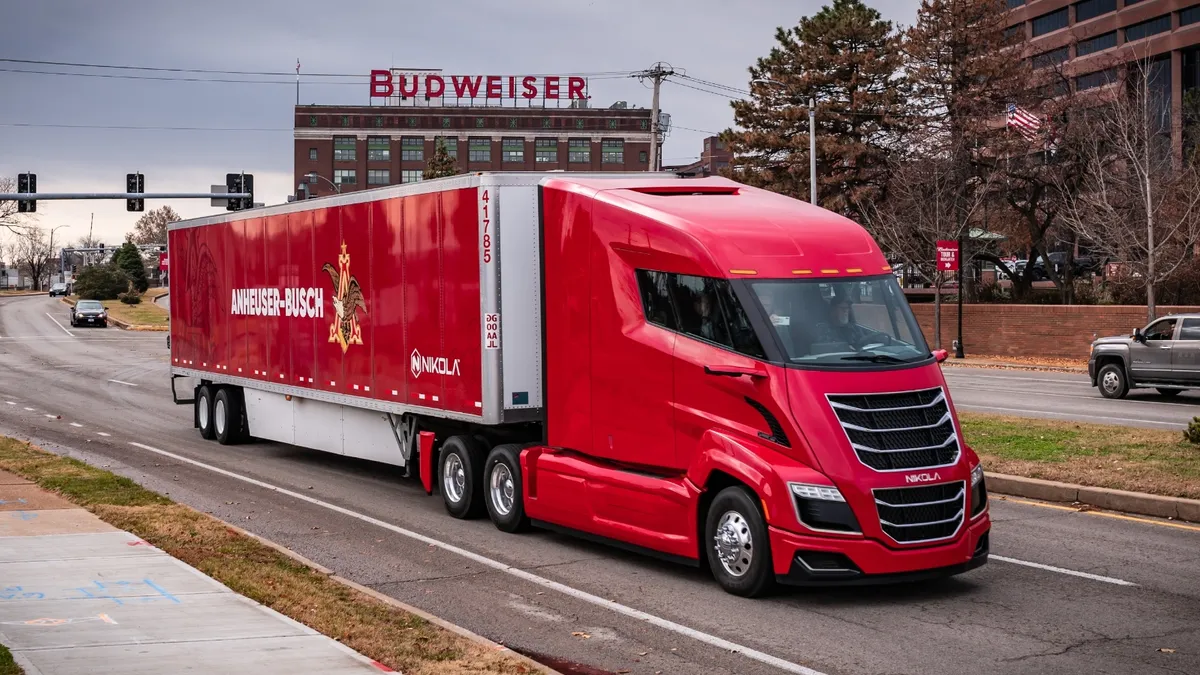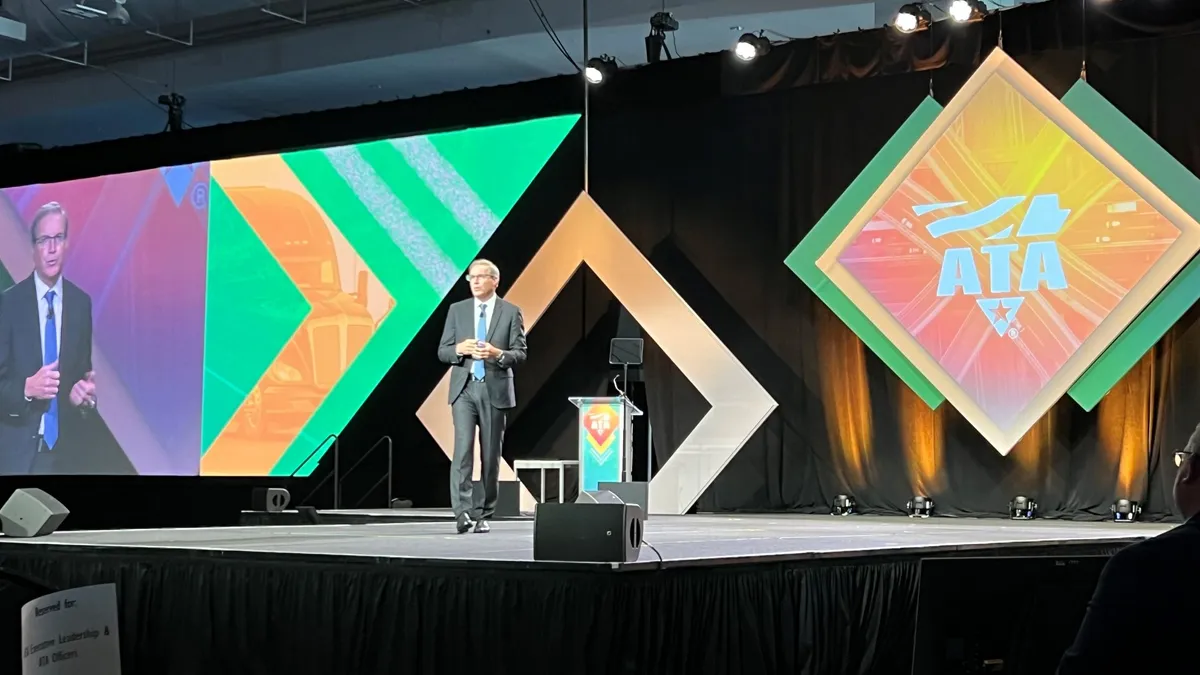Dive Brief:
- Nikola gave an update on its progress in a public release on Wednesday, to assure investors the OEM is on track to finish its manufacturing facility in Coolidge, Arizona. Nikola said it would complete phase 1 of construction by the end of 2021, with construction complete by mid-2023.
- Nikola's facility will first produce battery-electric trucks and then fuel-cell electric trucks, Nikola officials said. It will make as many as 35,000 Class 8 trucks annually, Nikola said, and will employ approximately 1,800 workers.
- The OEM said it will begin testing prototypes of its hydrogen fuel-cell powered semi-trucks by the end of 2021. Nikola said it is evaluating new partners and supply chain arrangements, an admission the company will not go it alone or start from scratch in building trucks. One partner is Bosch, which has integrated heavy-duty fuel-cell power modules into its trucks, Nikola officials said.
Dive Insight:
Nikola updated investors on several fronts, just weeks after founder Trevor Milton's exit from the company. Stocks improved Thursday after the statement went out, in a sign of confidence among stakeholders in Nikola's future.
Nikola said five prototypes of the Nikola Tre, a battery-electric truck, will be completed at its facility in Ulm, Germany, in the next few weeks. The Tre prototypes will be tested in Germany and available to customers starting in Q4 2021.
Nikola also said it continues to plan on building hydrogen fueling stations for customers. Nikola ordered $30 million in electrolyzers from Nel Hydrogen for the first hydrogen fueling stations.
But "dark clouds" remain for the OEM, according to Daniel Ives, managing director of equity research at Wedbush Securities. One of those clouds is the delay of a deal with GM, which was supposed to close Wednesday, according to the Associated Press.
Big problems surrounded Milton, who stepped down from the company and left his post as executive chairman, following a Sept. 10 report from Hindenburg Research, which shorted Nikola shares and declared the company's products were marketed based on "an intricate fraud." The company was accused of using non-Nikola parts at presentations and of not being anywhere near ready to produce working vehicles.
The report came only days after Nikola and GM announced a partnership that could save Nikola billions of dollars in factory construction. The partnership, while focused on the Badger pickup truck, would spread to Nikola's Class 8 and Class 7 manufacturing, the companies said, and could potentially speed up production of Nikola's fuel-cell electric trucks and battery-electric trucks.
Nikola was hoping to save $4 billion in battery and powertrain costs over 10 years, and over $1 billion in engineering and other costs, with the GM partnership. GM hoped for $4 billion in benefits, including equity, contract manufacturing for the Badger, supply contracts for batteries and fuel cells, and electric-vehicle tax credits.
But the subsequent Hindenburg report and Milton's departure clouded the deal, Ives said, a deal that has to remain for Nikola to succeed. GM could still pull out of the deal, Ives said. After the GM deal was announced, Ives said publicly that the alliance with the auto giant went a long way toward removing doubts about Nikola.
"There have been many skeptics around Nikola and its founder Trevor Milton's ambitions over the coming years, which now get thrown out the window with stalwart GM making a major strategic bet on Nikola," Ives wrote on Sept. 8.
That partnership carries even more weight now. "GM is the linchpin to [Nikola's] success," said Ives.
Ives said Tesla and Nikola have been the only two OEMs focused solely on electric vehicles, including Class 8 trucks. But Tesla pulled off "execution," as Ives calls it. Investors are still waiting on trucks from Nikola.
"Investors continue to generally believe in the prototype and vision of the electric-vehicle semi market," said Ives. "Right now, investors want to see trucks rolling off the assembly line."












